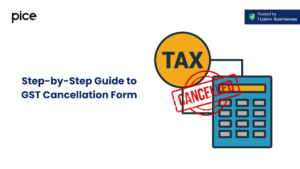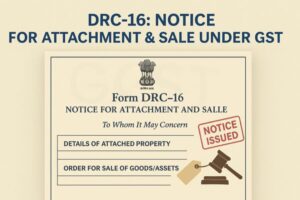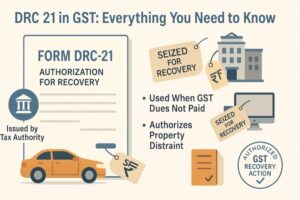An Overview of Consolidated Tax Invoice Under GST
- 1 Jul 25
- 9 mins
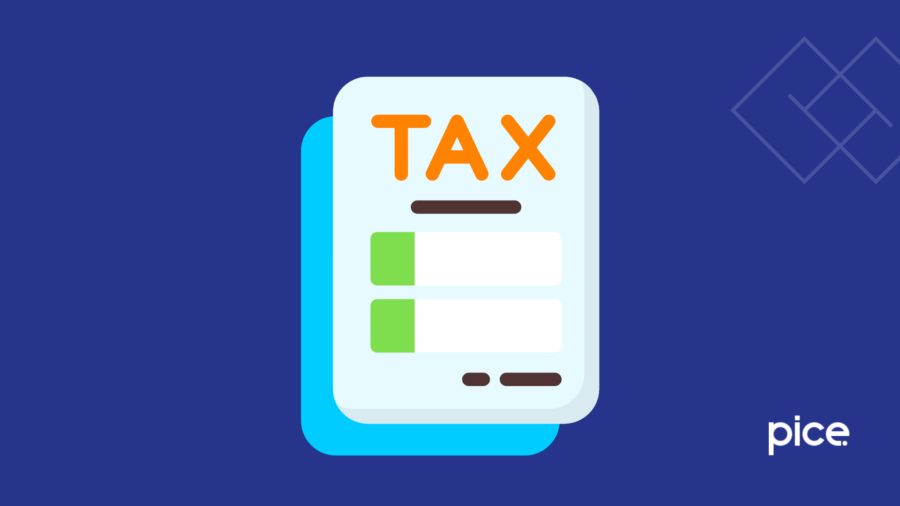
An Overview of Consolidated Tax Invoice Under GST
Key Takeaways
- A consolidated tax invoice can be issued for multiple small-value supplies (≤ ₹200) where the recipient isn’t registered or doesn’t need an invoice.
- GST invoices vary based on the nature of supply—tax invoice, bill of supply, revised invoice, or debit/credit notes.
- Special rules apply to tax invoice formats for ISDs, GTAs, passenger transport, banks, NBFCs, insurers, and OIDAR service providers.
- A bill of supply is used for exempt goods/services and under the composition scheme—no tax or ITC claim allowed.
- Ensuring the right invoice format and contents is essential for accurate GST compliance and ITC claims.
An invoice is a document a supplier sends to a person receiving goods or services. The GST law establishes clear guidelines for the uniform structure of invoices and deadlines for their issuance. However, there are certain exceptions. In some circumstances, tax invoices may take on distinct formats.
This blog provides an overview of consolidated tax invoice under GST and explores the different types of GST invoices. It also analyses the format of GST invoices under special cases.
Different Types of GST Invoices
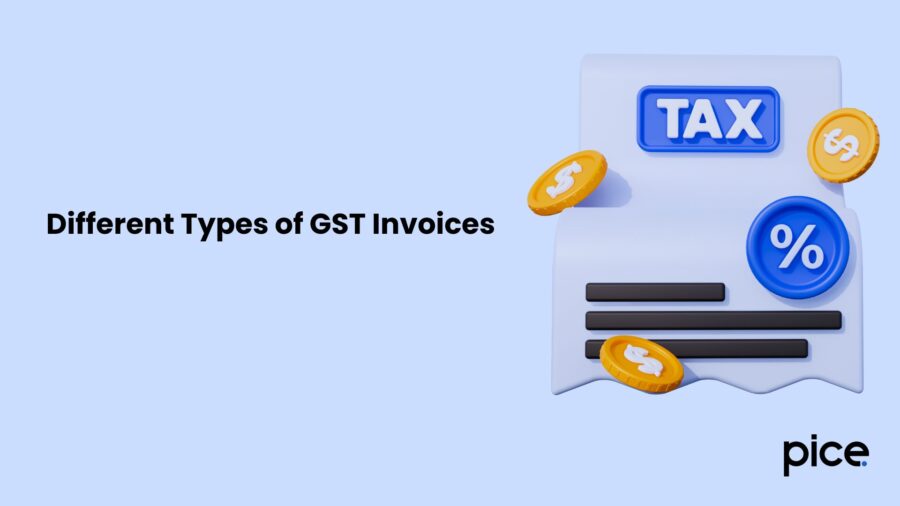
Below are the details of different types of GST invoices:
- Tax Invoice: A tax invoice is a document a supplier of goods or services sends to the recipient. It contains the value of taxable supply, product or service description, or both. A supplier must issue a tax invoice in respect of goods either before or at the time of:
- Delivery of goods or making them available to the receiver, in any other circumstance.
- Removal of goods for supply to the recipient, if the supply entails movement of goods.
- Consolidated Tax Invoice: A registered person under tax may issue a consolidated tax invoice under GST if-
- The business transaction value is less than or equal to ₹200
- The recipient does not need a tax invoice.
- The beneficiary is not a registered taxable person.
Supplies' description, HSN code, quantity, unit, rate, value, and other relevant information must all be included in a consolidated invoice.
- Debit Note and Credit Note: When customers return items to vendors or suppliers, a debit and credit note are often provided. When there is a discrepancy in a previous tax invoice in respect of a good or service, issuance of such a commercial document occurs.
Any of these below two circumstances results in the issuance of a debit note:
- The taxable value on the previous tax invoice is less than the actual amount.
- This tax invoice shows a lesser tax charge than the real amount.
The issuance of a credit note occurs for opposite reasons:
- The invoice’s tax amount or tax charge exceeds accurate amounts.
- The customer returns goods/ services and requests a refund due to discrepancies.
- Bill of Supply: Registered individuals who provide exempt goods or services, or those who are registered under the GST composition scheme, issue a bill of supply. Although it is a type of tax invoice, the amount mentioned in the bill of supply is non-taxable.
A Bill of Supply must include supply information, HSN code, amount, unit, tax rate, value, and other relevant information. Individuals cannot claim Input Tax Credits using the Bill of Supply.
- Revised Invoice: A GST-registered individual may submit a revised invoice within one month of the certificate of registration being issued, and in any way that may be specified. This invoice is issued against an invoice that was previously issued between the effective date of registration and the date on which he was granted the certificate of registration.
Format of Tax Invoice Under Special Cases
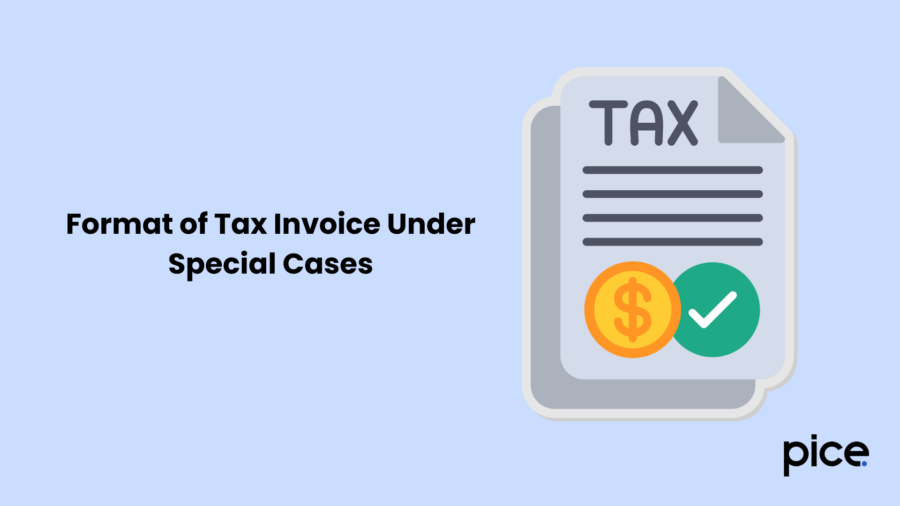
As you get the knowledge of consolidated tax invoices under GST and other types of tax invoices, let us have a look at the format of invoices in special cases:
Input Service Distributor
Tax details on an invoice or an Input Service Distributor (ISD) credit note should differ somewhat from those on a standard consolidated tax invoice under GST. This has to include:
- The input service distributor's name, billing address and GST registration number.
- The serial number of an invoice or credit note is distinct for each fiscal year. It might have letters, numbers, special characters like dashes or hyphens, or any combination of these.
Any legal document with the above information can be used as a tax invoice and does not need to be serially numbered if the input service provider is a banking company, financial institution or NBFC.
A registered person may issue an invoice, credit note or debit note to transfer the credit from common input services to the ISD if they have the same PAN and state code. This document must contain:
- Name, address of recipient, and unique GSTIN serial number for a fiscal year.
- Date of publication
- Common service provider’s GSTIN
- Original invoice number
- Name, location, and Input Service Distributor’s GSTIN
- Transferable credit amount, GST rate, and taxable value
- The registered individual’s or an authorised representative’s physical or digital signature
Invoices for Insurance, Banking Companies or Financial Institutions
Any supplier from the banking sector, an insurance provider or an NBFC entity, every month, could provide a consolidated tax invoice under GST for all of the supplies purchased on a monthly basis. Except for optional information like the recipient’s delivery address and serial number, the document must have all other information required for a tax invoice.
Goods Transport Agency
The Goods Transport Agency (GTA) provides a tax invoice that includes data as stated in Rule 46 along with the following information:
- The total gross weight of a shipment
- Name of consignee and consignor
- The registration number of a vehicle
- Product item details, including the origin and destination
- The GSTIN of the individual who must pay taxes, whether they are the consignor, the consignee or the GTA
Tax Invoice for Passenger Transport Services
A tax invoice in the form of a ticket must be issued when the provider of the taxable service provides passenger transportation services. The following flexibility is provided in the case of passenger transport services:
- This tax invoice does not need the recipient’s address.
- It is not necessary for a tax invoice to have a serial number.
In addition, the invoice must include all the necessary particulars as specified under Rule 46.
The ticket may include a digital signature, and it may be issued online or physically. If it is issued electronically, no signature is required.
Tax invoice for e-Commerce Operator or Supplier of OIDAR Services
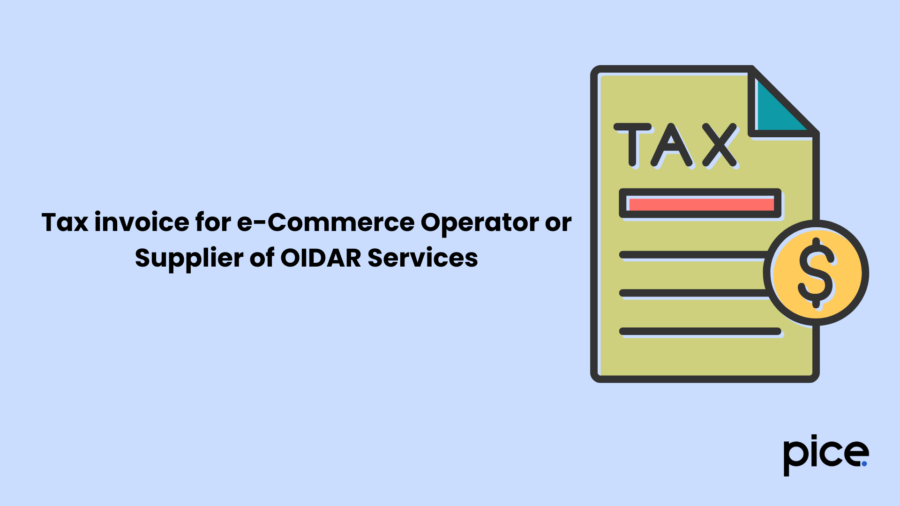
A tax invoice sent to an unregistered person by an e-commerce retailer or a provider of Online Information and Database Access or Retrieval (OIDAR) services needs to include:
- Recipient's name and address
- The PIN code
- Name of state
The above address will be considered as the recipient’s address on file. The above definitive rule will be in effect regardless of a supply’s worth.
Conclusion
A consolidated tax invoice under GST is crucial for GSTR reporting, claiming Input Tax Credit and ensuring business compliance. There are other types of invoices, including the standard tax invoice, bill of supply, credit and debit note. Note that the format of tax invoices differs in special cases.
However, it can be difficult to grasp GST compliance, particularly for non-experts. Therefore, you must seek professional.
💡If you want to streamline your invoices and make payments via credit or debit card or UPI, consider using the PICE App. Explore the PICE App today and take your business to new heights.
 By
By 





